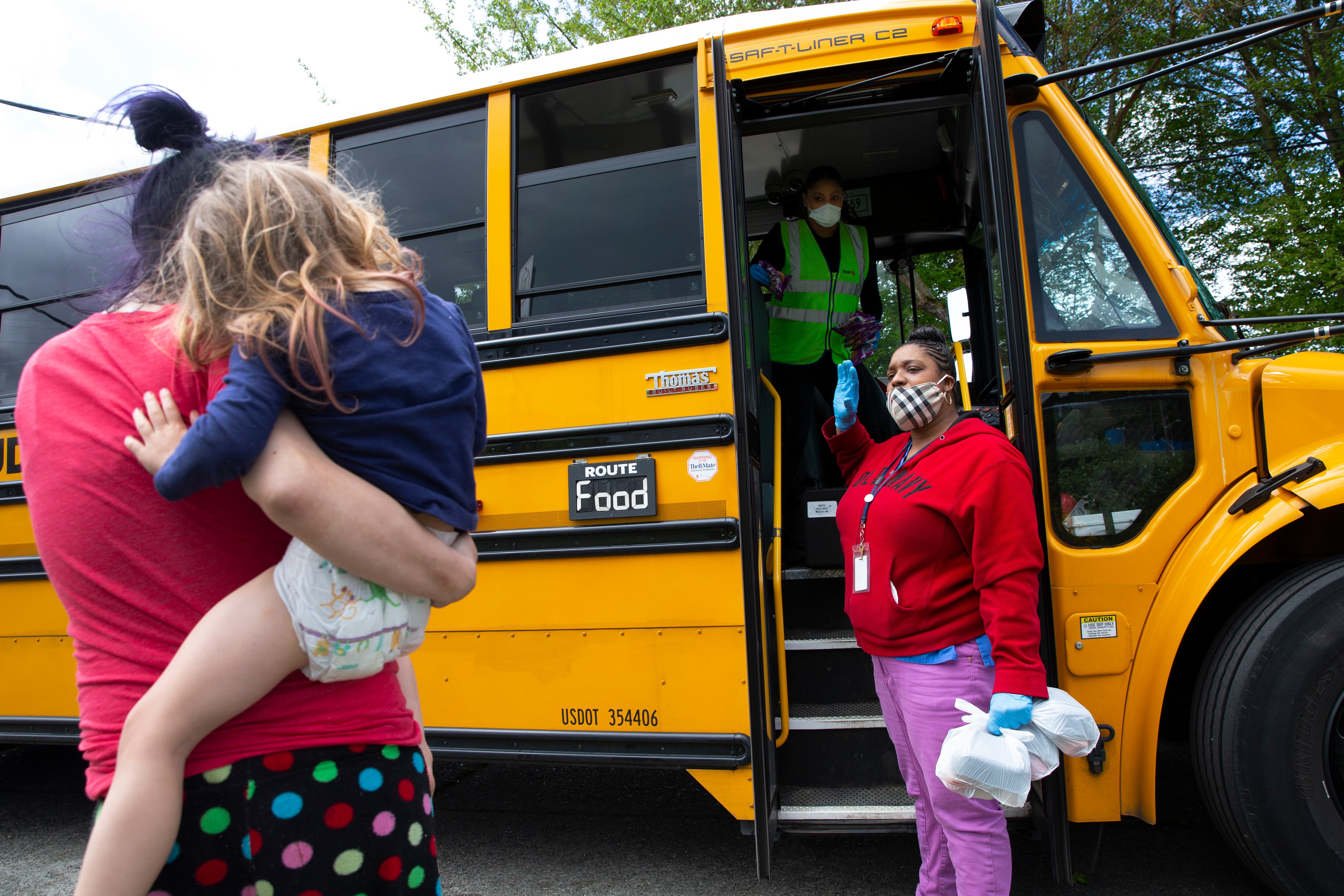Even as child hunger surges during the pandemic, some New Jersey families are still waiting for emergency food assistance that Congress approved months ago.
The program, which Congress established in March, is meant to make up for meals that students missed after schools closed nationwide this spring. In New Jersey, the Pandemic-Electronic Benefit Transfer program is supposed to provide $416 in food benefits to every child who qualified for subsidized school meals.
But bureaucratic delays in New Jersey have held up the money, which is expected to help feed more than 500,000 children. After promising to distribute the benefits in June, the state only began making payments this month, officials said.
The wait continues for many Newark families, including some of the roughly 30,000 students in traditional Newark public schools who are entitled to the emergency food money. Several families told Chalkbeat this week that they still haven’t received the aid, even as parents in some Newark charter schools and other nearby districts said their payments already arrived.

The delay has made it even harder for parents like Neoshi Baker to keep food on the table. With her 12- and 13-year-old children home around the clock, the family is flying through gallons of water, cartons of milk, and boxes of cereal each week. “You can’t be mad at the kids because they’re stuck in the house,” she said. “All they can do is eat.”
Baker’s remote job in medical billing makes it difficult to pick up the grab-and-go meals that Newark schools serve during work hours. So she’s tried to stock up on groceries by buying in bulk. And she’s repeatedly called her children’s school and emailed the state in a fruitless attempt to track down the promised food benefits.
“My kids need this,” said Baker, whose children attend Ridge Street School. “I need help.”
The long wait for benefits comes amid a spike in child hunger due to the pandemic, as parents lose jobs, food prices soar, and schools serve far fewer meals than when buildings were open. One recent analysis projected that as many as one in five New Jersey children will not have enough to eat this year — a 75% increase from 2018. And even more families could struggle to afford food if the state lifts its temporary freeze on evictions, said Adele LaTourette, director of the advocacy group Hunger Free New Jersey.
“The word ‘tsunami’ comes up in every call” with food pantries, she said. “They’re expecting lines and lines of people.”
The Pandemic-EBT program is meant to help feed children by providing food benefits to eligible families for the period when school buildings were closed due to the coronavirus. Families can use the money to buy food at grocery stores, bodegas, or certain online retailers such as Amazon and Walmart.
After New Jersey’s plan to provide the benefits was approved in early May, the state said families would receive $416.10 for each eligible child “no later than June.” But on June 30, the state Department of Human Services said the payments would now arrive in July.
An agency spokesperson said Thursday that the families of 150,000 children have received the money on the electronic cards that recipients of NJ SNAP, the state’s food stamp program, use to buy food. Those payments were made July 8, the spokesman said. Families who weren’t already enrolled in SNAP were due to receive cards in the mail beginning this past Monday, he added.
Yet many Newark families still appear to be waiting for the payment cards. In a poll posted on a local Facebook group Wednesday, more than 120 people who identified as parents of students in Newark’s traditional or charter schools said they had not received the cards. Only six self-identified parents said they had received them.
In interviews with Chalkbeat, several parents said their payments have not arrived. That includes parents with SNAP cards, who said they have not seen the money the state says was added last week.
“I don’t know anyone in this area who has received theirs — including myself,” said Yolanda Stokes, whose son attends University High School.
Stokes, who is awaiting the food stipend for her son, said she scours the local newspapers for deals and shops at wholesale stores such as Restaurant Depot and Costco to find affordable food. She also keeps a bin of extra food in her house to share with neighbors who are struggling to make ends meet amid the economic fallout of the pandemic.
“A lot of people have used some of their rent money to purchase food,” Stokes said, adding that some families worry about losing their homes when the state allows evictions to resume. “That’s how they’ve been surviving.”
The state human services department attributed the delay partly to school districts, saying some needed more time to submit information verifying that students qualified for free or reduced-price lunch.
“Benefits are being processed as quickly as possible based on the department receiving the necessary information from school districts,” said spokesperson Tom Hester.
However, a Newark Public Schools spokesperson said the district submitted the requested information in May. Newark officials have been urging the state to process the payments, according to Jaz West-Romero, a Newark parent and activist who said she spoke with district leaders this week.
Meanwhile, the state has been stretched thin by the pandemic. In April, the human services department requested a federal waiver from certain oversight rules related to the food stamps program, which it manages. The agency said the health crisis had left it with fewer workers and limited access to its databases, even as food stamp applications increased sixfold.

The emergency food-assistance program created additional challenges, which many states have faced. The agency had to coordinate with the state’s education and agriculture departments to determine families’ eligibility, which involved collecting subsidized meal rosters from every school district.
“We have three different departments that had to come together to get these numbers,” said LaTourette, the anti-hunger advocate. “Getting a fine-tuned number in a quick way is not only challenging, but virtually impossible.”
While they await help from the state, parents like Shanaya Thomas are making do the best they can.
Despite her fear of contracting the virus, Thomas crosses the city on public buses searching for the best food prices — “penny-pinching” to provide meals for her family, as she puts it. With two teenage children in Newark schools, she is expecting $832 in emergency food aid. Yet as of Thursday, she said, her benefits card still was missing the money the state said it sent parents last week.
“What is taking you all so long?” she said. “We need it for our kids.”






